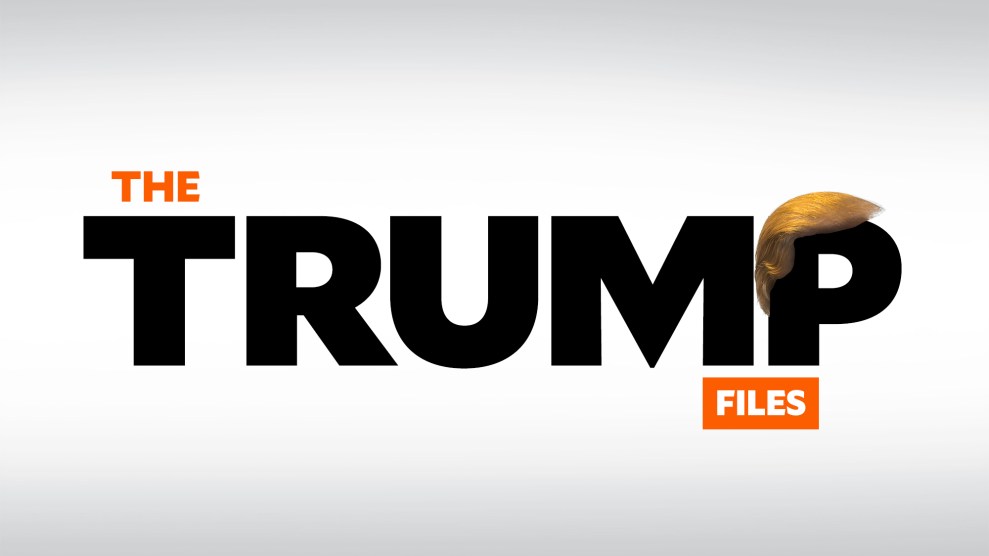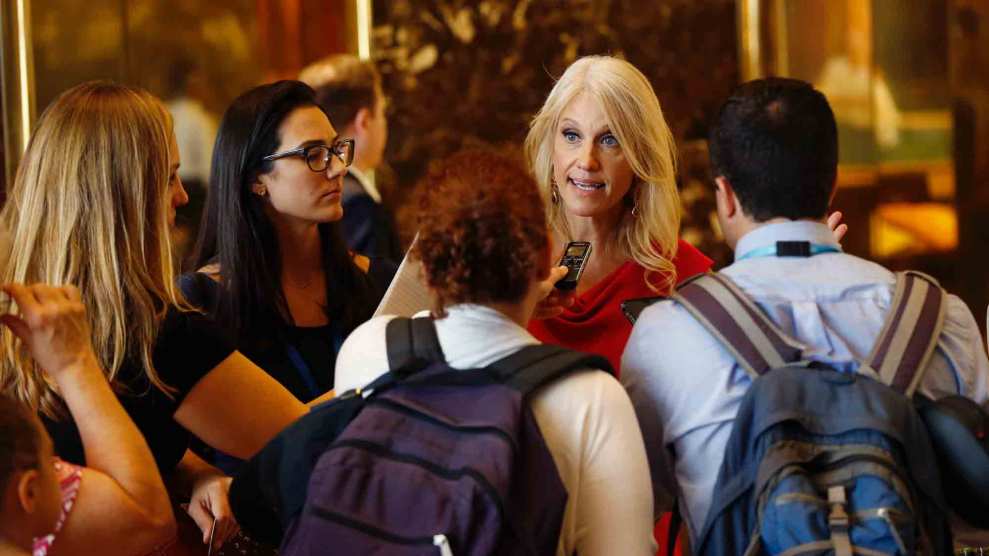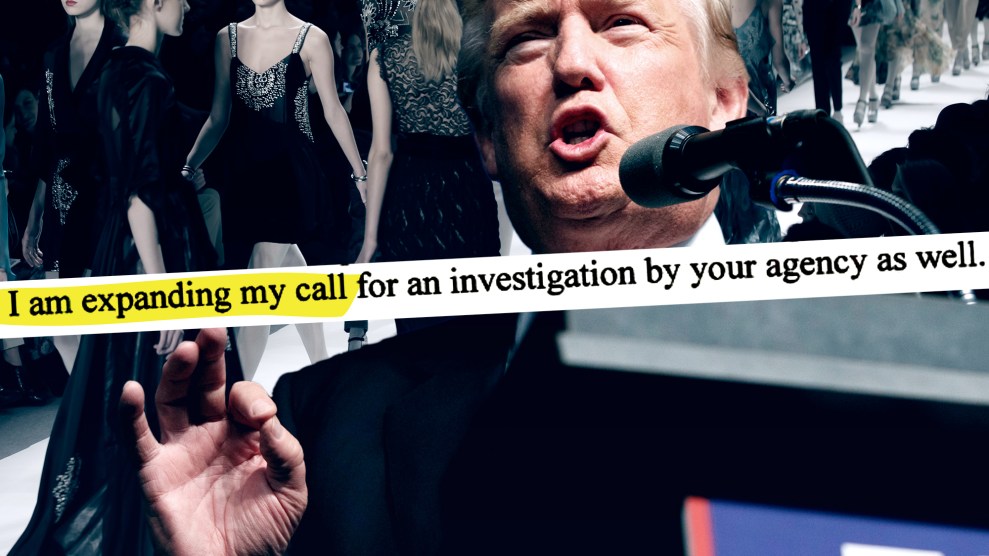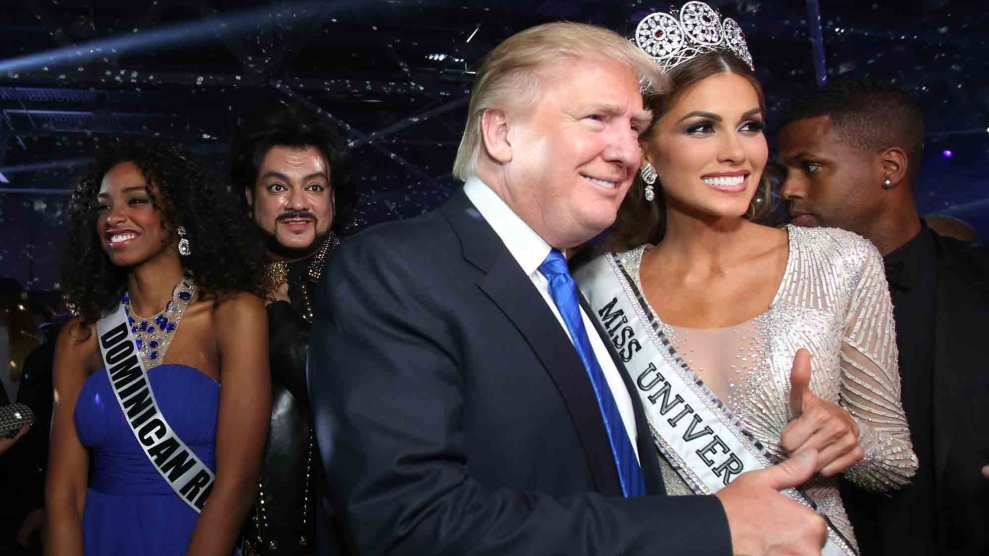
Ivylise Simones
Until the election, we’re bringing you “The Trump Files,” a daily dose of telling episodes, strange but true stories, or curious scenes from the life of GOP nominee Donald Trump.
Donald Trump made a habit of bashing Japan when the island nation was an economic juggernaut in the 1980s—a habit he’s even continued into the 2016 campaign despite Japan’s long economic slump. In one of his books, 1990’s Surviving at the Top, he even told a lengthy story about how much he enjoyed throwing a superwealthy Japanese businessman out of his office. But his anti-Japanese comments came back to haunt him.
In early 1990, Trump was short of cash and many of his highly leveraged properties couldn’t make enough money to keep up with their debts. Trump’s struggling properties included his Atlantic City casinos—he nearly destroyed his own empire by missing an interest payment on the Trump Castle that June—and Trump’s beloved Plaza Hotel in New York, which he’d once called a “Mona Lisa” in a full-page open letter in the New York Times. Seeking to save the Plaza from bankruptcy, Trump went to Japan to court potential partners who might buy half the hotel, the Washington Post‘s Michael Kranish and Marc Fisher write in their new book, Trump Revealed.
But Japanese businessmen weren’t having any of it. Japanese buyers had once snapped up condos in Trump’s buildings. But between Trump’s xenophobic rhetoric, public marital problems, and increasingly shaky finances, their interest was cooling. “He sweet-talks the Japanese buyers [in Tokyo] and then criticizes them in New York,” a Tokyo real estate agent told the Wall Street Journal that June. “Japanese investors aren’t stupid. They know what’s going on.” A banker told Newsweek the same month that potential Japanese buyers once “would tell us, ‘We want something in a Trump building. We don’t care what it costs.’ Now, forget it. They don’t like the publicity.”
“Trump came home, no investor in sight, the Plaza’s debt mounting,” Kranish and Fisher write.
An investor never arrived, and it cost Trump. He eventually gave up nearly half the Plaza, but on very different terms: His creditors took over 49 percent of the hotel in 1992, giving him debt relief in return for the ownership stake and Trump’s removal from day-to-day operations, according to the New York Times. Trump sold his remaining stake in 1995, and some of the hotel wound up in the hands of a prince from another favorite Trump punching bag: Saudi Arabia.

















